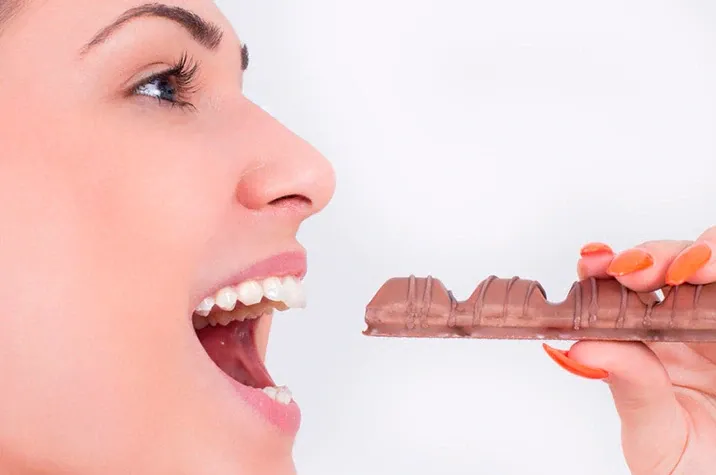How Does Sugar Affect Your Dental Health?

11-10-2021
Sugar is the main enemy of your teeth and eating too much of it can have harmful effects on them. Twice the recommended daily amount. This is how the World Health Organization (WHO) estimates that we mistreat our teeth in terms of sugar intake. And, far from what you may think, sugar is an element that is not present only in goodies or industrial pastries. Soft drinks, packaged juices, your breakfast cookies and the food you eat at each meal also contain a variable amount of sugar.
Several studies reveal that our daily sugar intake is around 90-100 grams, the equivalent of about 24 teaspoons of sugar when it is advisable not to exceed 12.
In addition to having negative effects on our body and our weight, sugar damages our teeth in a very aggressive way.
The higher our sugar intake, the greater the risk of developing serious oral pathologies. The most frequent oral disease is tooth decay, which in most cases is caused by eating too much sugar. This mostly affects children, potential consumers of sugary foods such as sweets and cakes, and those who have a less refined brushing technique that causes food to remain in their teeth, damaging them.
But in addition, sugar increases the production of acid in the mouth, a substance that erodes the enamel until it destroys it, while also enabling the accumulation of oral biofilm between the teeth and gums, which opens the door to gingivitis.
Avoiding sugar damage to your teeth
Obviously, the best advice your Simi Valley dentist can give you is to keep your sugar intake to a minimum: honey is an excellent sugar substitute, toasted bread with oil and salt is healthier than jam and sugar-free gum tastes the same as regular gum.
Dr. Muradian knows that giving up these small pleasures can be a bit difficult, so the most practical thing he can ask you to do is avoid consuming all kinds of sugary food, as well as packaged juices and soft drinks between meals. Why? Because we tend to brush after our three main meals – breakfast, lunch, and dinner.
If we eat foods with sugar in between these three main meals, and then brush, floss and rinse, you will most certainly minimize its effects. On the other hand, if you have them for a snack and don’t brush until after dinner, the sugar will stay on your teeth for hours.
If you start developing good dental hygiene with appropriate products, and regularly visit your Simi Valley dentist, you could afford some sweets without your mouth being at risk! Schedule your appointment with Dr. Muradian today by calling (805) 522-0880.
